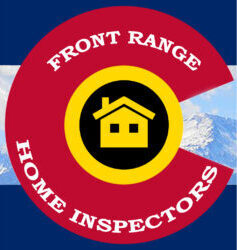The Importance of Radon Testing in Colorado Homes
Are you a homeowner in Colorado? If so, it’s crucial to be aware of the potential dangers lurking within your home, particularly when it comes to radon gas. Radon is a naturally occurring radioactive gas that can seep into buildings, including homes, posing serious health risks to you and your loved ones. In this blog post, we’ll delve into the importance of radon testing, especially in the Colorado region, and why it’s essential for every homeowner to consider.
Understanding Radon:
Radon is a colorless, odorless gas that forms naturally from the breakdown of uranium in soil, rock, and water. As it decays, radon emits radioactive particles that, when inhaled, can damage the cells lining your lungs, potentially leading to lung cancer. According to the Environmental Protection Agency (EPA), radon is the second leading cause of lung cancer in the United States, responsible for thousands of deaths each year.
Colorado’s Radon Risk:
Colorado is known to have higher-than-average levels of radon due to its geological makeup, particularly in areas with granite or uranium deposits. The Rocky Mountain region, including Colorado, is considered a hotspot for radon gas. As a result, homes in Colorado are at an increased risk of radon infiltration, making radon testing and mitigation efforts crucial for homeowners statewide.
Why Radon Testing Matters:
Radon is a silent threat, with no visible signs or symptoms of its presence. The only way to know if your home has elevated radon levels is through testing. Radon testing involves placing specialized devices in your home to measure radon levels over a period of time. If high levels of radon are detected, steps can then be taken to mitigate the issue and reduce the health risks to you and your family.
Protecting Your Loved Ones:
Given the serious health risks associated with radon exposure, it’s essential for homeowners in Colorado to prioritize radon testing. By testing your home for radon, you’re taking proactive steps to safeguard the health and well-being of your family. Early detection of elevated radon levels allows for timely intervention and mitigation measures, ensuring that your home remains a safe and healthy environment.
Choosing a Certified Radon Testing Professional:
When it comes to radon testing, it’s important to work with a certified radon testing professional who has the expertise and experience to accurately assess radon levels in your home. Look for reputable companies that specialize in radon testing and mitigation services, ensuring that you receive reliable results and effective solutions to address any radon issues in your home.
Conclusion:
Radon testing is a critical aspect of homeownership, especially in Colorado where radon levels can be elevated. By testing your home for radon, you’re taking proactive steps to protect your family from the dangers of radon exposure and reducing the risk of lung cancer. Don’t wait until it’s too late – schedule a radon test for your Colorado home today and gain peace of mind knowing that your loved ones are safe from this silent threat.
